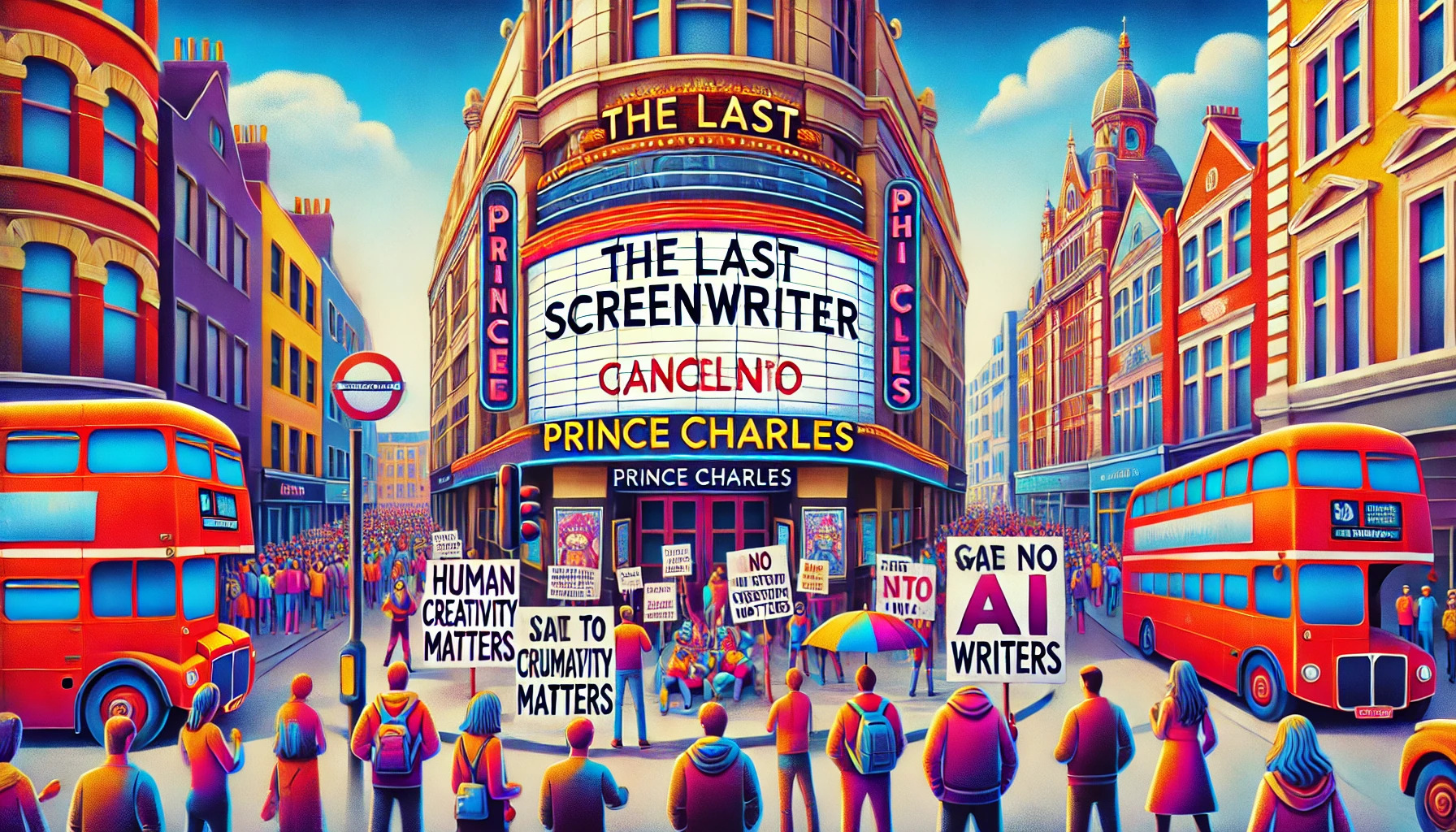The Ethical Implications of AI in Creative Writing: The Case of “The Last Screenwriter”
The intersection of artificial intelligence (AI) and creative writing has sparked intense debate and controversy. The recent decision by the Prince Charles Cinema in Soho to cancel the premiere of “The Last Screenwriter,” a film entirely written by the AI program ChatGPT, underscores the growing public unease about the role of AI in creative fields. This article delves into the events leading to the cancellation, the ethical concerns raised, and the broader implications for the future of AI in creative writing.
The Cancellation of “The Last Screenwriter”
Background of the Film
“The Last Screenwriter,” directed by Peter Luisi, was set to premiere at the Prince Charles Cinema, a venue renowned for its diverse programming. The film’s unique selling point was its script, entirely crafted by ChatGPT, an advanced AI language model developed by OpenAI. The plot follows Jack, a veteran screenwriter, whose career is upended by an AI scriptwriting tool that not only matches but surpasses his capabilities in conveying human emotions and complex narratives.
Public Reaction
Despite the innovative premise, the public reaction was overwhelmingly negative. Concerns about the ethical implications of AI replacing human creativity dominated the discourse. Critics argued that using AI in creative writing undermines the value of human artistry and could lead to the displacement of human writers.
Decision to Cancel
In response to the backlash, the Prince Charles Cinema decided to cancel the private screening. The cinema’s statement on Instagram highlighted their commitment to their audience and the artistic community, stating that the decision was influenced by customer feedback expressing strong concerns about the use of AI in creative writing.
Ethical Concerns Surrounding AI in Creative Writing
Displacement of Human Writers
One of the primary concerns is the potential for AI to displace human writers. As AI becomes more adept at creating content that resonates with audiences, the demand for human writers could diminish, leading to job losses in the creative sector. This raises important questions about the future of employment in creative industries and the need for policies to protect human creators.
Intellectual Property and Compensation
Another significant issue is the question of intellectual property and compensation. When AI creates content, it often draws on vast datasets that include works by human creators. This has led to calls for regulations ensuring that artists are fairly compensated when their creations are used to train AI models. The debate extends to the ownership of AI-generated content and whether it should be attributed to the developers of the AI or the entities that commission the work.
Quality and Authenticity of AI-Created Content
The quality and authenticity of AI-created content are also points of contention. While AI can produce text that mimics human writing, critics argue that it lacks the genuine creativity and emotional depth that characterize truly great art. There is a fear that an overreliance on AI could lead to a homogenization of creative output, diminishing the richness and diversity of human expression.
The Broader Implications for the Creative Industry
Impact on the Entertainment Industry
The controversy surrounding “The Last Screenwriter” has far-reaching implications for the entertainment industry. It highlights the need for a careful and considered approach to integrating AI into creative processes. Stakeholders must balance the potential benefits of AI, such as increased efficiency and new creative possibilities, with the ethical and social costs.
Legislative and Regulatory Responses
The debate has also caught the attention of UK lawmakers, who are under pressure to develop regulations that address the complexities introduced by AI in creative fields. This includes ensuring fair compensation for artists, establishing clear guidelines for the use of AI in content creation, and protecting jobs in the creative sector.
Future Directions for AI in Creativity
As AI continues to evolve, it is likely to play an increasingly prominent role in creative industries. However, its integration must be guided by ethical considerations and a commitment to preserving the human element of creativity. Collaborative efforts between AI and human creators could lead to new forms of artistic expression that enhance rather than replace human ingenuity.
The Last Picture Show
The cancellation of the AI-written film “The Last Screenwriter” at the Prince Charles Cinema marks a significant moment in the ongoing dialogue about AI’s role in creative writing. The event has brought to the forefront crucial ethical concerns and highlighted the need for thoughtful regulation and public discourse. As we move forward, it is imperative that we find ways to harness the potential of AI in a manner that respects and preserves the unique contributions of human creativity.
This comprehensive exploration of the ethical implications of AI in creative writing aims to provide a nuanced understanding of the challenges and opportunities presented by this technological advancement. By addressing these issues head-on, we can ensure a future where AI and human creativity coexist and complement each other.


